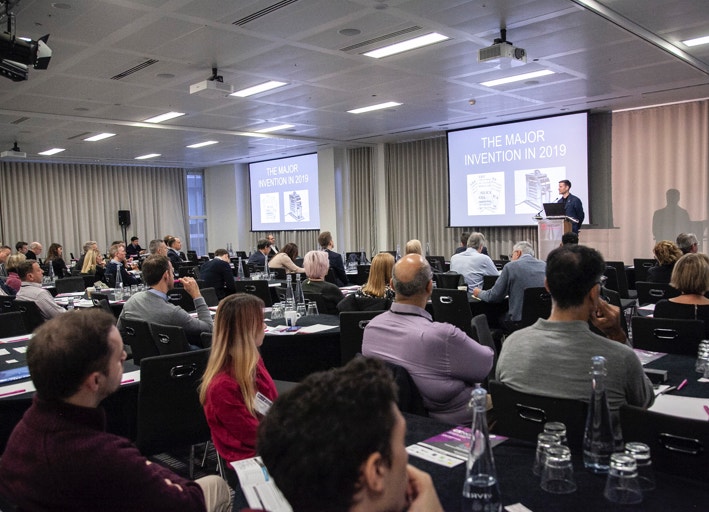To launch our Best Practice Series we are starting with the continued focus on the Future of Work, Remote Working and the need for organising ourselves digitally. This means using Interest Groups and Communities of Practice to better share and communicate within and across teams.
Facilitating improvements in communication, knowledge sharing and transparency across the organisation is fundamental to improving efficiency and reducing errors and problems. This need for improved communication naturally leads to the creation of various Communities of Practice, to allow people to share experiences and knowledge with other members of the company either within the same group or outside the structured organisational boundaries.
Action Plan for Community Groups
Implementing a Robust Digital Workforce enables your team to work and collaborate efficiently while being located remotely and provides the tools to adapt to rapidly changing business conditions in this dynamic environment. Using tools and activities like Interest Groups and Communities of Practice can help share experience and knowledge across the organisational boundaries to benefit all.
ACTION PLAN
Below is an action plan to help organisations move towards a robust digital workforce and leveraging networks, groups and communities.
STEP 1 – Assess the current tools available to empower your remote workforce.
STEP 2 – Evaluate how to better use your existing technologies to improve channels of communication and collaborative working
STEP 3 – Identify gaps in your digital workforce capabilities and source appropriate components to give your organisation additional options. Providing additional ways for teams and groups to communicate with each other both formally and informally is very important for remote workforce.
STEP 4 – Create the cultural awareness to encourage the adoption of a more digital working environment.
STEP 5 – Support virtual coffee breaks and team video lunches to provide opportunities for sharing and ad-hoc conversations between employees and teams.
STEP 6 – Set up a Community of Practice Group which spans across teams and departments provides a platform for additional channels of communication which during times of crisis and volatility helps to ensure staff have good visibility of what is happening within the company.
Special Interest Groups (SIGs)
Many organisations will setup various groups that focus on a particular topic of interest or specialism that people across the firm are interested in. These will often align to specific roles within the company, to specific activities or an individual topic (such as a type of technology).
These SIGs are often setup and include both online knowledge-bases, wikis, file stores and chat capabilities, together with regular meetings. The general purpose of these groups is to socialise expertise and knowledge on the subject to those in the organisation that will benefit from such information. They often serve as a great place for those less experienced to ask questions and seek guidance from those who have more knowledge of the subject.
Easy to setup and manage, they are pretty self-sufficient but would normally require a leader to help setup and monitor the groups activities and to organise in person events and meetings. Special Interest Groups have the core purpose of sharing information and knowledge across the organisation, and allow firms to benefit from peoples knowledge across organisation boundaries. However there are some limitations to the scope of SIGs that often requires a Community of Practice, Working Group or Steering Committee to resolve (if needed).
Community of Practice (CoPs)
A Community of Practice (CoP) can be setup to cover any subject matter and can include people from various groups and backgrounds who have an interest in the topic. Often the CoP will be focused on a new technology that the organisation is looking to adopt. Given my background in Artificial Intelligence, the topic of focus for many of the CoPs I have been involved with has been on the adoption of AI and Machine Learning. Other times the CoP can be focused on a process improvement or even a job role specialism. For example I have been involved in broader areas such as Innovation or Lean Delivery CoPs. Regardless of the topic, the challenges for the CoP are still the same.
However, despite the importance of CoPs, setting up and running them successfully long-term is a non-trivial exercise. We have seen many examples where organisations set up a CoP but fail to secure its running long-term. Either the initial enthusiasm dissolves, or the core group does not reach critical mass, or the organisers runs out of interesting agenda items and topics. This combined with the pressures of our main roles, executing a CoP while hugely beneficial if done correctly can be difficult to sustain.
Over the last few years I have setup and run a number of different CoPs in a number of different organisations and have seen many of the problems that challenge the longevity of a CoP and have created a number of solutions that turn the challenges into opportunities that fundamentally secure both the need and support for the CoP operationally.
One of the key success factors for a CoP is purpose. Without purpose the CoP will eventually collapse. From the outset, defining the purpose of the CoP, its reason for existing is really important. Communicating the purpose with the wider community, potential members, stakeholders and advocates is essential. This messaging needs to be reinforced regularly so members who attend, understand how important the group is to the management and organisation. The purpose needs to be linked to the business and technology strategy and seen as a driver for success for them.
Another key success factor is to give the CoP ownership and decision-making authority within its own field of expertise. Allowing the members to be masters of their own destiny is tremendously powerful. This will align well with an agile and lean methodology of constant improvement but also drive engagement and contributions to facilitate best practice across the organisation.
A well organised and managed CoP will not only keep and grow the community internally but will facilitate the introduction of external speakers to share wisdom from other organisations that maybe more advanced in the area of interest providing valuable insights to accelerate progress and avoid pitfalls. External Speakers will supplement the CoP agendas which will already have people within your organisation sharing their own experiences, successes and challenges as part of the knowledge sharing focus.
Another key factor for the CoP is membership recruitment. It is essential to grow the membership of the group to keep an active membership. Overtime people join and people change roles, so having an ongoing focus on membership acquisition is important. It is also important to note that different people join a CoP for different reasons. Some are joining just to learn as they are interested in the topic but don’t consider themselves as experts and may not even be working with the subject matter (but may want to in the future), these members are important but most are unlikely to be what I would call active members of the community. Others are joining because it is a topic they know and work with and want to both learn from others but also contribute their views and opinions too. These members will be active members offering views and thoughts and potentially even speak on the work they are doing. A few members of the group will be your core team, very active, joining every meeting, wanting to contribute to the purpose and objectives and able to help with any deliverables you decide the group should focus on. Understanding this mix of participation and encouraging members who want to contribute more will be another key success factor for the community.
Another success factor is that of reporting progress of the CoP. This information is useful for both the existing members, to see how active the group is and how the group is growing to extend its influence, but also to the senior management, stakeholders, advocates and sponsors to illustrate the progress and value achieved from the group. The reporting will take different formats and utilise various formats, from quarterly updates to weekly status and progress. The reports will have different audiences and will be used in different ways to promote the group.
While these are a few of the key success factors for a CoP, there are many other aspects to sustaining a Community of Practice, learnt from many years of running such communities both within organisations and externally in the public sector that will help ensure your CoP not only runs longer term but adds value and delivers organisational and technical change that aligns with your overall strategy.
When a CoP is setup and run well, it can be a significant force for change, help an organisation to accelerate its adoption of technologies and processes both faster and more successfully than otherwise possible. I have seen CoPs bring different parts of an organisation together (that previously thought of each other as competitors), discover projects and technology implementation occurring that would not have been widely shared without the CoP, and provide a platform for agreeing standards and principles that become important for the organisation from an audit, compliance and governance perspective.
Let us Help
We are positioned well to facilitate your journey to leveraging the benefits of CoPs within your organisation and happy to help regardless of your experiences of CoPs in the past. We are very happy to meet to share more about our experiences in this area and to discuss how we might help your organisation.
for more information or to request a no obligation meeting with us, fill in our contact us form or call us on +44 333 40 40 373










